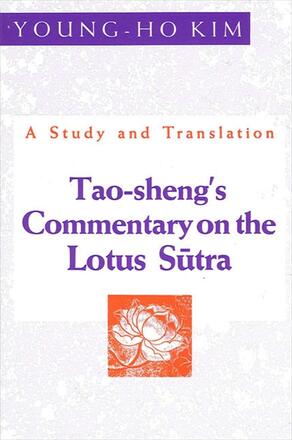
Tao-Sheng's Commentary on the Lotus Sūtra
A Study and Translation
Alternative formats available from:
Description
(Chu) Tao-sheng stands out in history as a unique and preeminent thinker whose paradigmatic, original ideas paved the way for the advent of Chinese Buddhism. The universality of Buddha-nature, which Tao-sheng championed at the cost of excommunication, was to become a cornerstone of the Chinese Buddhist ideology. This book presents a comprehensive study of the only complete document by Tao-sheng still in existence.
Young-ho Kim is Assistant Professor of Philosophy at Inha University in Korea.
Reviews
"The reliability and detail of the scholarship makes this book a definitive study of this text by Tao-sheng (ca 360-434). The author has exhaustively and carefully reviewed all the existing research in English, Chinese, and Japanese. He presents the material in a straightforward manner, tightly reasoned, and fully documented. The topic is significant and could serve as a means for introducing the major Mahayana themes which were used as the foundation for East Asia Buddhism. " — David W. Chappell, University of Hawaii at Manoa
"This is a fine textual study in early Chinese Buddhism. It focuses on one of the founding patriarchs, his personality, peers' reactions to his thought, and the influential commentary work on the Saddharmapundarika-sutra. It explores the volatile period where the Chinese Buddhists were still groping with Taoist metaphors for the best expressions of Buddhist principles and teachings. Thus this study exhibits the ideological dynamics of an important period and elucidates the direction taken by Chinese Buddhist schools. " — Kenneth K. Inada, State University of New York at Buffalo